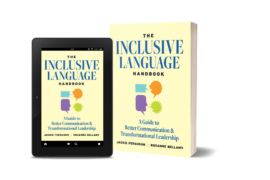A statement by The Diversity Movement
This week, in the midst of Women’s History Month, the U.S. Senate conducted confirmation hearings for Supreme Court Justice Nominee Ketanji Brown Jackson. If confirmed, she will be the first Black woman and the first public defender to sit on the Supreme Court. Regardless, she is the first Black woman to be nominated for the position in the court’s 233-year history, which includes 120 Chief and Associate Justices. Yet Black women have comprised around 10% or more of the U.S. population since 1789, when the Supreme Court was founded.
The Diversity Movement applauds the nomination and looks forward to Jackson’s confirmation as Supreme Court Justice. This historic moment is all the more significant – beyond Judge Jackson’s resume and character – because of her experiences as a Black woman.
Instead of evaluating Judge Jackson’s qualifications to determine if she is the most qualified person “regardless of her race and gender” – as so many news outlets have reported this week – we argue that her demographic background amplifies her capabilities, bringing diversity of perspective and experience to the Supreme Court.
Representation in the Court
Like many of the nation’s oldest institutions, the U.S. Supreme Court has a demographic history that skews mostly White, mostly male, mostly Christian, mostly married, mostly affluent, mostly aged 45-65, and mostly people who attended Ivy League schools, including Harvard, Columbia, and Yale. Those who become Supreme Court Justices also tend to graduate at or near the top of their class.
If confirmed, Kentanji Brown Jackson will be the first Black woman Supreme Court Justice. Others who broke invisible barriers before her include Justice Louis Brandeis who became the first Jewish Associate Justice in 1916; Justice Thurgood Marshall, who became the first African American Associate Justice in 1967; Justice Sandra Day O’Connor, who became the first woman Associate Justice in 1981; and Justice Sonia Sotomayor, who became the first Hispanic Associate Justice in 2009. At present, Justice Amy Coney Barrett is the only justice who did not attend an Ivy League law school.
Is She Qualified?
In many ways, Judge Jackson fits the demographic parameters of those who came before her as Supreme Court Justices. She is a Christian. She is married. She is 51 years old. She graduated magna cum laude from Harvard University, then attended Harvard Law School, where she graduated cum laude and was an editor of the Harvard Law Review (HLR). Other Supreme Court Justices who have served as HLR editors include Felix Frankfurter, Ruth Bader Ginsburg, Elena Kagan, John G. Roberts Jr., Antonin Scalia, Edward Sanford, and the Supreme Court Justice that Ketanji Brown Jackson would be replacing: Associate Justice Stephen Breyer. President Barack Obama was another prominent former HLR editor.
Yet Judge Jackson also brings a number of less-common experiences to the court, having served as public defender, a district court judge, and on a sentencing commission. She went to public high school, and also of course, she is a Black woman – a demographic community completely unrepresented by past and present Supreme Court Justices.
Culture Fit v. Culture Add
As a best practice of inclusive hiring, our team at The Diversity Movement frequently urges hiring professionals at our client organizations to look for people who make “good cultural additions,” not just a good cultural fit. By doing so, you increase your team’s diversity of perspective, which leads to improved decision-making, problem-solving, productivity, and outcomes.
As legal scholar Stephen Vladeck explains in the Washington Post, “‘Ketanji Brown Jackson brings more experience as a judge than four of the current justices did combined at the time they joined the court.’ The most important question, according to Vladeck, is ‘how much the nominee rounds out the court and adds perspectives to the court that are not adequately represented or represented at all.’”
Still, as any hiring manager will tell you, a candidate’s impressive resume is not the only important piece when determining whether they’re qualified for the job. Character traits are important too. Does Ketanji Brown Jackson demonstrate the requisite judicial poise, professionalism, perseverance, and focus on facts? Perhaps that’s what her Senate confirmation hearings have tested, as Judge Jackson has consistently remained calm and focused throughout, despite what some are calling racist and sexist questioning.
Persevere and Do Not Be Distracted.
In one memorable story from her confirmation hearing, Judge Jackson recalled advice from a stranger that helped to shape her course. “I’m from Miami, Florida,” she said. “Boston is very cold. It was — it was rough. It was different from anything I’d known. There were lots of students who were prep school kids, like my husband, who knew all about Harvard. And that was not me. And I think the first semester I was really homesick. I was really questioning, ‘Do I belong here? Can I make it in this environment?’ And I was walking through the yard in the evening and a Black woman I did not know was passing me on the sidewalk,” Jackson continued. “And she looked at me. And I guess she knew how I was feeling, and she leaned over as we crossed and said, ‘Persevere.’” That one word, says Jackson, is now her core advice to marginalized and underrepresented professionals across the country.
As Toni Morrison writes, “the very serious function of racism is distraction. It keeps you from doing your work. It keeps you explaining, over and over again, your reason for being. Somebody says you have no language and you spend twenty years proving that you do. Somebody says your head isn’t shaped properly so you have scientists working on the fact that it is. Somebody says you have no art, so you dredge that up. Somebody says you have no kingdoms, so you dredge that up. None of this is necessary. There will always be one more thing.”
SCOTUS Is Not Unique
Within Judge Jackson’s nomination and confirmation hearings, there is a lesson for organizational leadership. Finding the best candidate for any job requires an intentionally inclusive recruiting, hiring, and evaluation process in order to mitigate unconscious bias and address the hidden, inherited, and systemic biases within our existing processes and systems. When organizations invest in inclusive hiring practices, they see better outcomes, inarguably – whether those organizations are first-year start-ups, Fortune 500 corporations, membership-based associations, or the Supreme Court of the United States.
To learn more, watch our on-demand webinar, “How to Lead an Inclusive Interview Process” and join our DEI Navigator subscription service to receive the member-exclusive “Best Practices for Inclusive Hiring” guide.
Connect with our team to get started.






